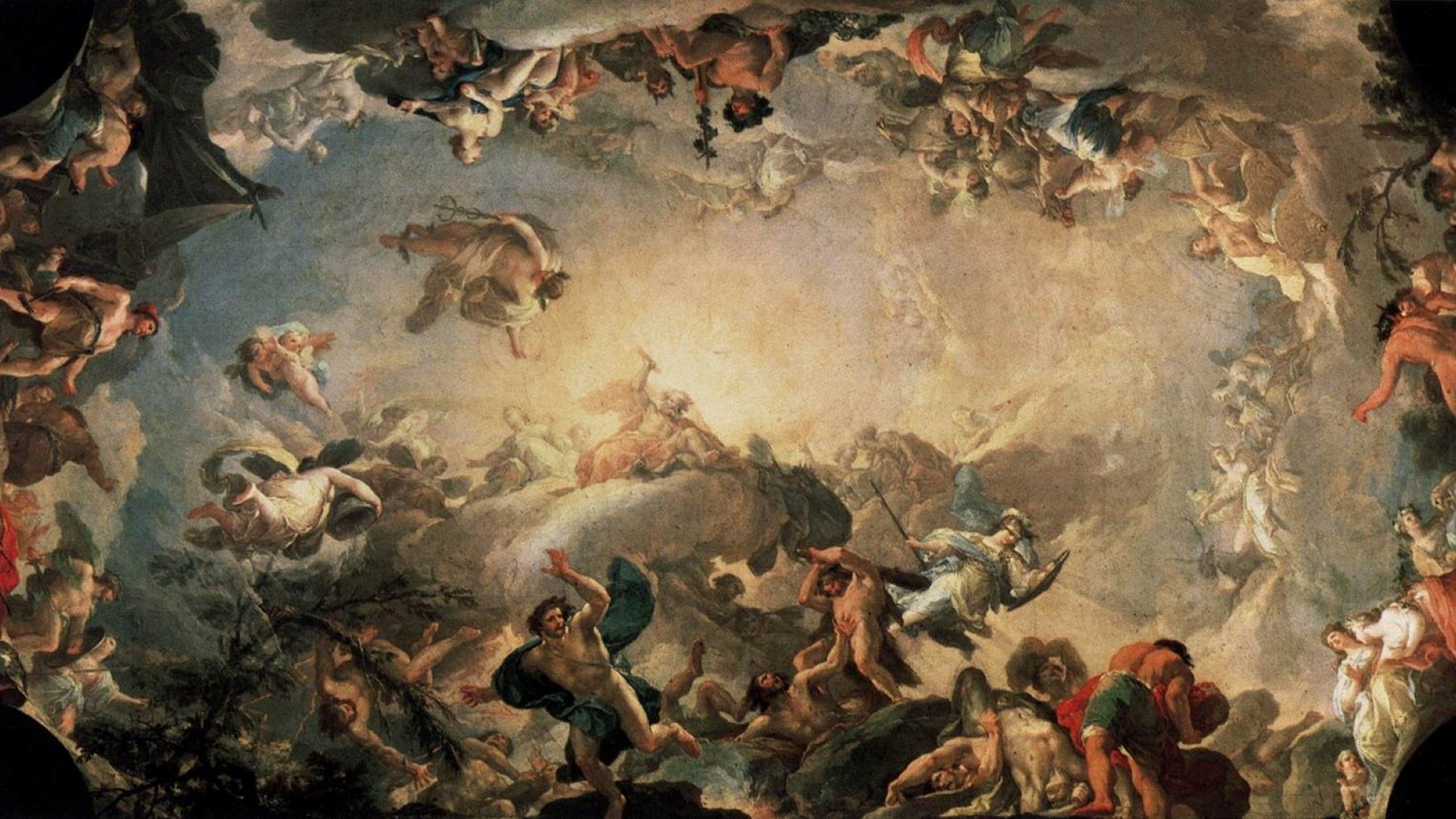
Adrastus
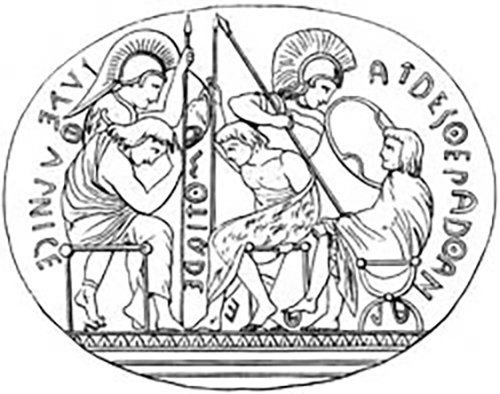
Adrastus (Ancient Greek: Ἄδραστος , translated as 'inescapable') was a king of Argos in Greek mythology, and in antiquity was primarily famous for his role organising the Seven Against Thebes and the War of the Epigoni.
ADRASTUS SON OF TALAUS
Adrastus was the son of King Talaus (son of Bias) and Lysimache (daughter of Abas, granddaughter of Melampus); Adrastus would have a number of siblings, including Pronax, Mecisteus, Aristomachus, and Eriphyle.
Some also call Astynome and Metidice, siblings of Adrastus, although their mother is normally named as Eurynome, a daughter of Iphitus.
ADRASTUS KING OF ARGOS
When Talaus died, Adrastus would become King of Argos, though, at the time, Argos was divided into three, a division that occurred in the time of Adrastus’ grandfather Bias, when Bias’ brother, Melampus had cured the Argive women, in return for two-thirds of Anaxagoras’ kingdom.
Thus, when Adrastus was king, the other two parts of Argos were ruled by Iphis, grandson of Anaxagoras, and Amphiaraus, great-grandson of Melampus.
Some also call Adrastus King of Sicyon, inheriting the throne from Polybus, who some call Adrastus’ grandfather, although this would make Talaus’ wife, Lysianassa rather than Lysimache or Eurynome.
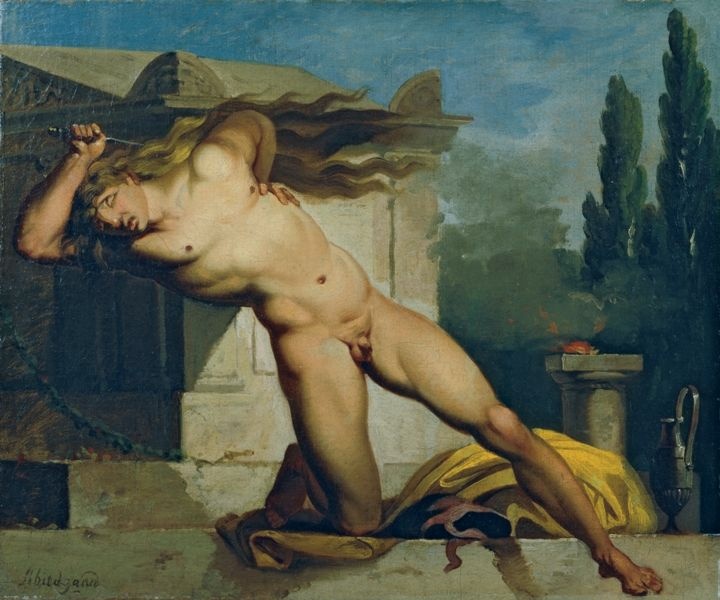
THE FAMILY OF ADRASTUS
Adrastus would marry Amphithea, daughter of Pronax, a woman who was thus, Adrastus’ own niece. This marriage was commonly said to have brought forth five children; the sons of Adrastus being, Aegialeus and Cyanippus, and the daughters being Argea, Deipyle and Aegiale.
An Oracle offered up a prophecy to Adrastus, proclaiming that he should marry two of his daughters to a boar and a lion, and of course, as was the way with such prophecies, this did not seem to make much sense at the time.
THE SON-IN-LAWS OF ADRASTUS
Adrastus was a hospitable king, and it so happened on the same night he welcomed two royal exiles to his palace; one exile was Polynices, son of Oedipus, who had been exiled from Thebes, and Tydeus, son of Oeneus, who had been banished from Claydon.
Both strong-willed, Polynices and Tydeus, almost immediately got into a fight, observing the two men fighting like wild animals, Adrastus took this to mean that one was the boar and one was the lion spoken of in the prophecy. Thus, Adrastus, arranged the two exiles to marry two of his daughters, Polynices would marry Argea, and Tydeus would wed Deipyle.
With a strong family tie to the two exiles, Adrastus also agreed to return the pair to their respective thrones.
ADRASTUS AND THE SEVEN AGAINST THEBES
Firstly, Adrastus organised an Argive army to place Polynices on the throne of Thebes. Seeking seven commanders, the Seven, to lead the army, Adrastus eventually got Amphiaraus, Capaneus, Eteoclus, Hippomedon, Parthenopaeus, Polynices and Tydeus to lead the army.
Additionally, Mecisteus was called an ally of the Seven Against Thebes.
These commanders, in the main, had a strong family link to Adrastus.
Amphiaraus , brother-in-law of Adrastus, having married Adrastus’ sister, Eriphyle
Capaneus , nephew of Adrastus, as a son of Adrastus’ sister, Astynome
Eteoclus , son of Iphis
Hippomedon , nephew of Adrastus, as a son of Adrastus’ brother, Aristomachus
Parthenopaeus , son of Atalanta
Polynices , son-in-law of Adrastus
Tydeus , son-in-law of Adrastus
Mecisteus , brother of Adrastus
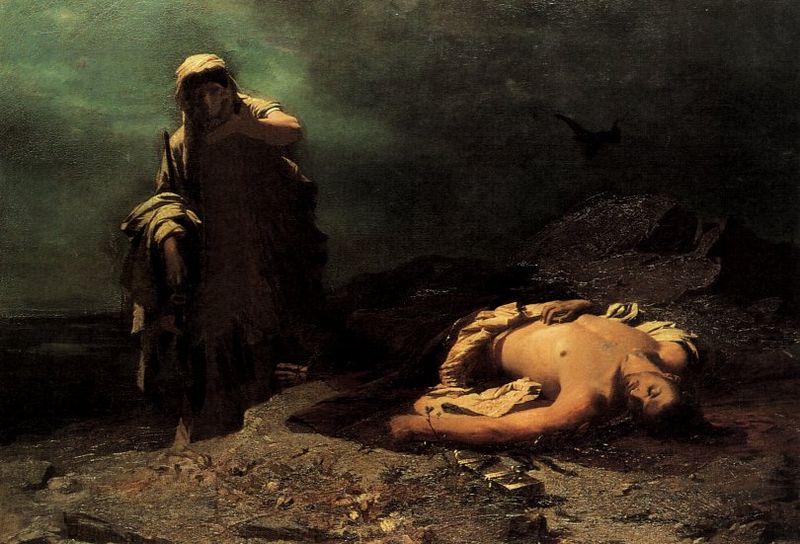
ADRASTUS AND THE NEMEAN GAMES
When the army marched on Thebes, the force stopped in Nemea, and there, Adrastus inaugurated the Nemean Games, in honour of Opheltes, the son of King Lycurgus of Nemea, who was killed by a serpent, whilst his nursemaid was distracted as she was showing the route to Thebes to the Seven.
At these first Nemean Games, Adrastus would win the horse race, for Adrastus was astride one of the fastest horses of the day, Arion, a horse born of Poseidon and Demeter, when both were in horse form.
WAR FOR ADRASTUS
When the army arrived at Thebes, Tydeus was sent as an ambassador to ask Eteocles to yield the throne, but when this request was rejected the war began.
The war of the Seven Against Thebes went badly, and all of the Seven, as well as Mecisteus were killed on the battlefield, and when all was lost, Adrastus, was whisked to safety by Arion.
ADRASTUS IN ATHENS
The dead Argive lay on the battlefield, for Creon, the new regent of Thebes, refused to allow for their burial. Adrastus no travelled to Athens to seek King Theseus’ assistance in forcing Creon to reverse the unholy decree.
Theseus would initially refuse to help Adrastus, instead admonishing the older king for the foolishness of going to war without the backing of the gods.
The wives of the fallen, who had accompanied Adrastus, then pleaded with Theseus, and eventually, Aethra, Theseus’ mother would convince her son, to help. The Athenian army marched on Thebes, and the threat of another war was enough to convince Creon to allow burial rites to be performed.
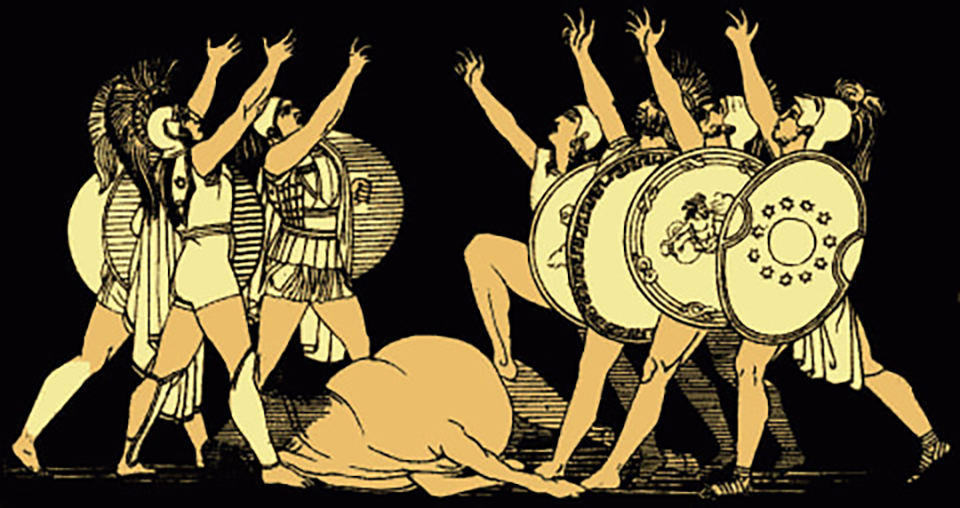
ADRASTUS BACK IN ARGOS
Adrastus returned to Argos after the disastrous campaign against Thebes, but ten years later the sons of the fallen Seven gathered, and agreed to exact revenge for their father’s. The War of the Epigoni began, and included amongst the Epigoni was Aegialeus, the son of Adrastus.
Aegialeus though would fall at the Battle of Glisas, before the new army reached Thebes, the Battle of Glisas would prove a decisive win for the Epigoni, and soon after Thebes was taken.
In more detail...
Second war against Thebes
Ten years after this, Adrastus persuaded the seven sons of the heroes who had fallen in the war against Thebes to make a new attack upon that city, and Amphiaraus now declared that the gods approved of the undertaking, and promised success.
This war is celebrated in ancient story as the War of the Epigoni. Thebes was taken and razed to the ground, after the greater part of its inhabitants had left the city on the advice of Tiresias. The only Argive hero that fell in this war was Aegialeus, the son of Adrastus.
After having built a temple of Nemesis in the neighborhood of Thebes, he set out on his return home. But, weighed down by old age and grief at the death of his son, he died at Megara and was buried there. After his death he was worshipped in several parts of Greece, as at Megara, at Sicyon where his memory was celebrated in tragic choruses, and in Attica.
The legends about Adrastus and the two wars against Thebes have furnished ample materials for the epic as well as tragic poets of Greece, and some works of art relating to the stories about Adrastus are mentioned in Pausanias.
From Adrastus the female patronymic "Adrastine" was formed.
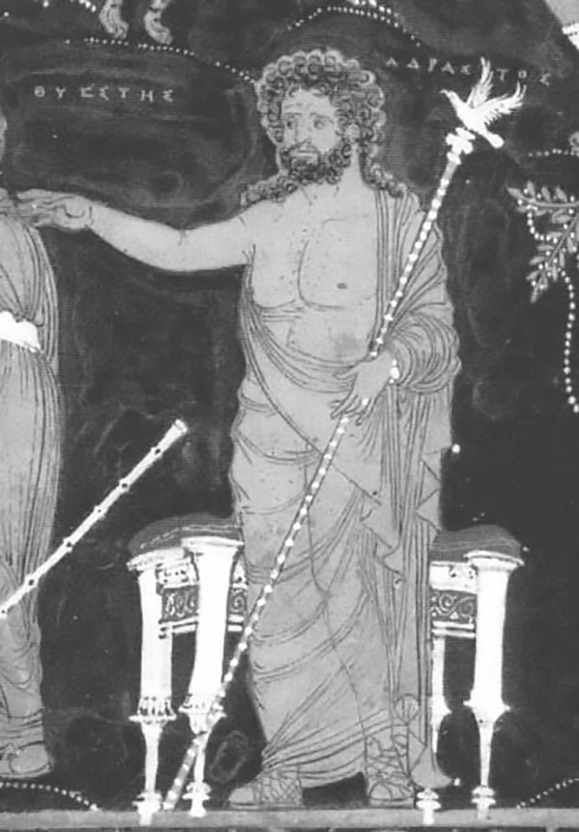
Sources
Ἄδραστος". An Intermediate Greek-English Lexicon. Oxford: Oxford University Press.
Bibliotheca i. 9. § 13
Pausanias, ii. 6. § 3
Hyginus, Fabulae 69
Comp. Schol. ad Eurip. Phoen. 423
Homer, Iliad ii. 572
Pindar, Nemean Odes ix. 30, &c.
Herodotus, v. 67
Barthell, Edward E. Gods and Goddesses of Ancient Greece. University of Miami Press, 1971 (Original from the University of Virginia), pp. 105–106.
Schmitz, Leonhard (1867). "Adrastus (1)". In Smith, William (ed.). Dictionary of Greek and Roman Biography and Mythology. 1. Boston. p. 21.
Bibliotheca iii. 6. § 1, &c.
Hyginus, Fabulae 69, 70
Homer, Iliad xxiii. 346, &c.
Pausanias, viii. 25. § 8
Bibliotheca iii. 6
Bibliotheca iii. 7. § 1
Pausanias, ix. 9. § 1
Pausanias, ix. 9. § 2
Bibliotheca iii. 7. § 2
Bibliotheca iii. 7. § 24
Herodotus, v. 61
Strabo, vii. p. 325
Pausanias, i. 43. § 1
Pausanias, l.c.
Pausanias, i. 30. § 4
Pausanias, ix. 9. § 3
Pausanias, iii. 18. § 7, x. 10. § 2
Homer, Iliad v. 412
"Wikipedia"
"Greek Legends and Myths"
Our Mobile Application
Check out Our Mobile Application "Ancient Greece Reloaded"


